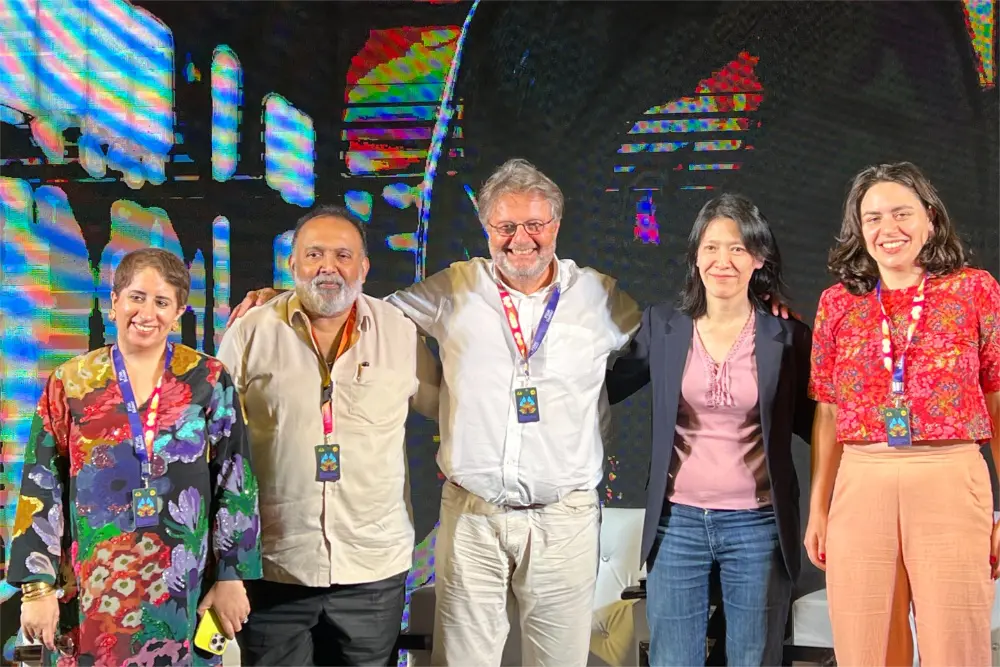Led by former Cannes film market head Jerome Paillard, who is now advising India’s Film Bazaar, leading international producers discussed India-Europe co-productions during a panel at the event in Goa.
Producer Guneet Monga Kapoor recounted how her breakthrough film “The Lunchbox” emerged from Film Bazaar itself. “I’ve been coming to Film Bazaar since 2008 and owe the majority of my career to it,” said Monga Kapoor. She detailed how a Rotterdam film lab scholarship helped her understand international co-production structures, leading to partnerships with French and German producers for the film.
Claire Chassagne, producer of Sundance winner “Girls Will Be Girls,” also a Film Bazaar project, emphasized the importance of creative development in securing competitive European funding. “It’s really like a package you need to have showcasing your director’s vision and then a strong script that helps you with those very competitive funds that are in Europe,” said Chassagne.
Producer Bich Quan Tran shared her experience producing Rotterdam-winning animated feature “Schirkoa: In Lies We Trust,” yet another Film Bazaar project, highlighting the complexities when directors take on producing roles like Ishan Shukla did on the film. “It’s extremely important to be aware of the workload that comes with it, especially in an international co-production,” Tran noted, explaining how European funding systems differ significantly from Asia’s private equity model.
Popular on Variety Film Federation of India president Ravi Kottarakara traced the evolution of Indian co-productions over four decades, from simple distribution deals to today’s incentive-driven partnerships. He stressed the importance of creating universally appealing content: “Make content which is acceptable to my country and to the co-producing country and to other countries.”
The panelists, responding to Paillard’s questions about practical challenges, identified several hurdles in India-Europe co-productions, including differing funding structures, distribution approaches, and business cultures. Chassagne compared co-productions to marriages, emphasizing the need for clear communication and early agreement on terms. “You need to have all the hard conversations as soon as possible,” she advised.
The discussion highlighted how streaming platforms have impacted traditional territory-based sales models, with Monga Kapoor noting how digital rights negotiations can complicate co-production deals.
The session concluded with calls for developing case studies of successful co-productions and establishing clearer frameworks for future partnerships between Indian and European producers.
Film Bazaar (Nov. 20-24) is the project market component of the International Film Festival of India (IFFI, Nov. 20-28) in Goa.

 Italian
Italian







